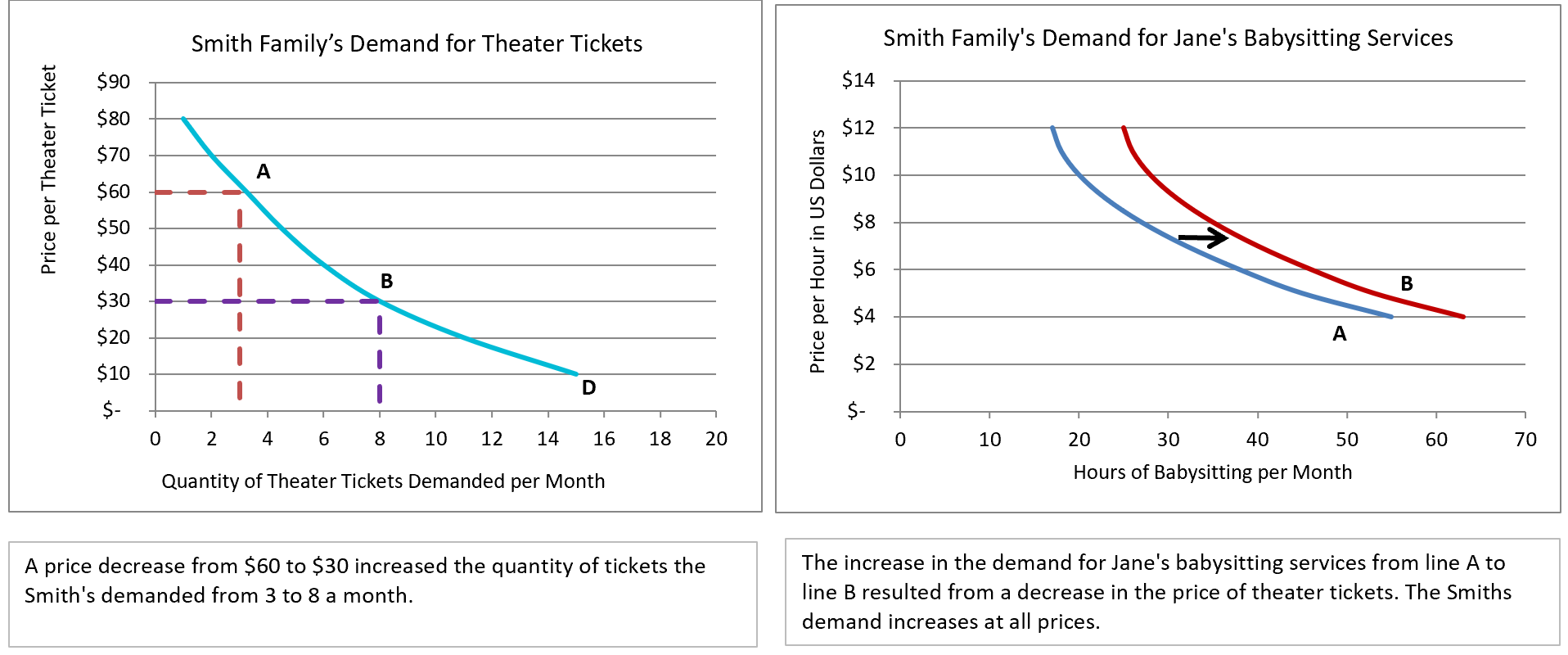Complements are goods or services that are frequently used together.
Congratulations on receiving your first computer! After turning it on, you’ve realized that it doesn’t have the necessary software, and you also need a printer and an internet connection. If the sale of computers increases, the sale of software, printers, and internet services will also increase because computers, software, and printers are complements. When the demand for a product increases, the demand for its complements also rises.
Take, for example, theater tickets and babysitting services. Let’s say the Smiths enjoy going to the theater. Since they have a child, they need to hire their babysitter, Jane, whenever they attend a play. The graphs below show the relationship between ticket prices and the demand for Jane’s babysitting. When ticket prices were $60, the Smiths attended three plays. The theater then reduced the price of advanced purchases to $30, and the Smiths decided to buy eight tickets. Consequently, the quantity demanded increased from three to eight due to the change in ticket prices. Although Jane does not change her price, the demand for her services increases because the Smiths now need her to babysit five more times. It’s worth noting that Jane could increase her price if she has other clients like the Smiths and sees a significant increase in demand. As a result, there is an outward shift in the demand for Jane’s babysitting.

Peanut butter and jelly are considered complements. These two items are popular with kids and are usually found together in grocery stores. If peanut butter prices decrease, people will buy more peanut butter, which means they will also need more jelly to go with it, which leads to an increase in the demand for jelly at all prices. When the price of a product decreases, the demand for its complements will increase. Conversely, if the price of a product increases, the demand for its complements will decrease.
Gillette has leveraged the complementary relationship between razors and blades for many years. Gillette offers its razors at a low price to encourage purchases. Razors and blades complement each other - buying a razor increases the demand for blades.
Changes in Demand – When Consumer Tastes Change
Demand – The Consumer's Perspective
Supply and Demand – When Producers and Consumers Reach Agreement
Understand A Stock's Performance Using Supply and Demand